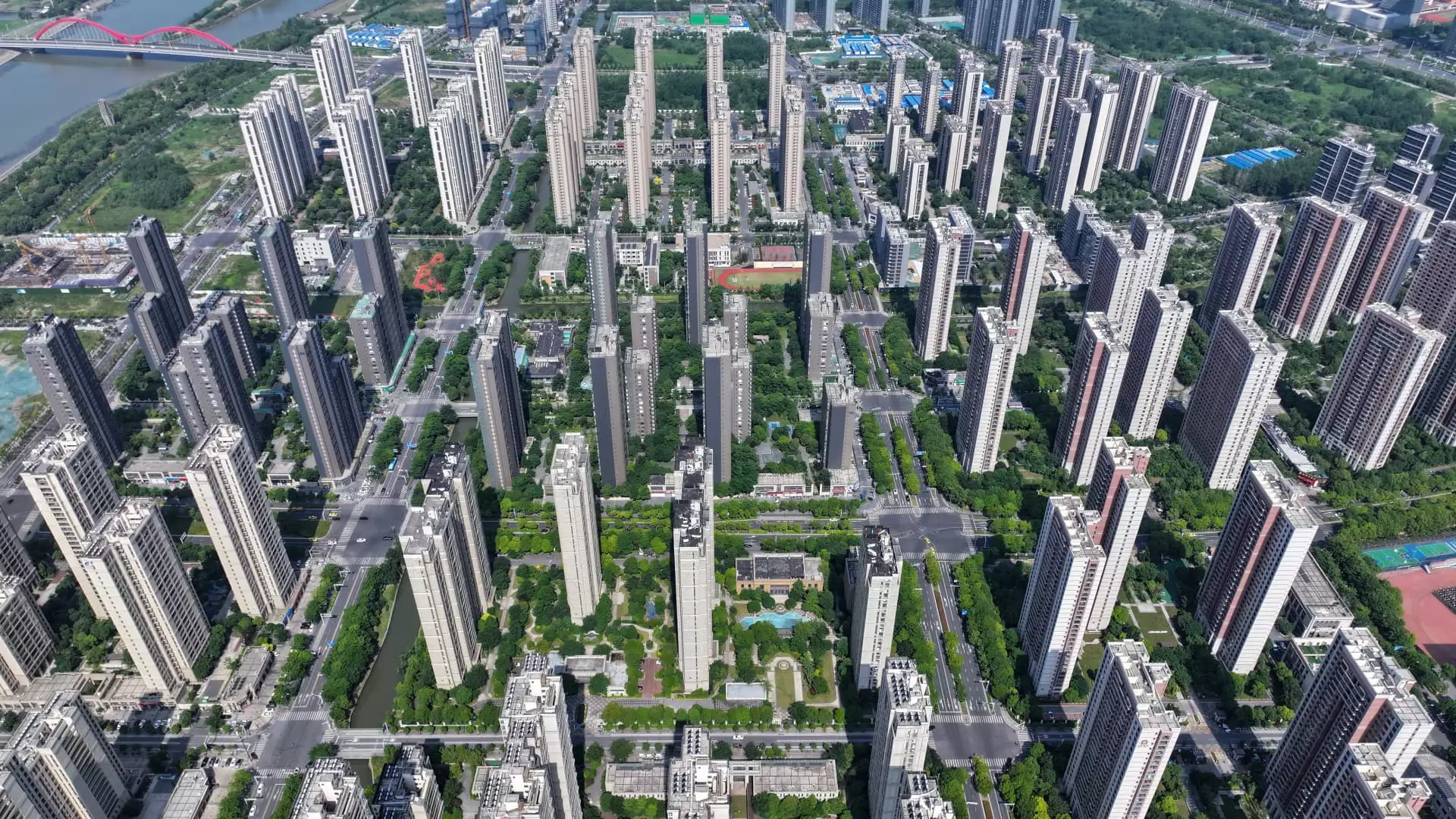In recent developments, Chinese property stocks listed in Hong Kong have seen a remarkable uptick, hitting their peak levels over the past year. This surge is largely attributed to an ongoing rally stimulated by various support measures from Beijing aimed at revitalizing the lagging real estate market. The Hang Seng Index showcased a notable inclination towards real estate, with Longfor Group Holdings leading the charge, witnessing an impressive 25% increase. Similar trends were observed among other major players in the property sector; Shimao Group saw its stock price soar more than 87%, while Kaisa Group thrived with a substantial increase of 40.48%.
The momentum did not stop there. China Overseas Land & Investment recorded an upturn of 12.31%, achieving its best performance since the previous September. Furthermore, venerable developers like China Vanke and Hang Lung Properties also enjoyed gains of 39.6% and 10.01%, respectively. The broader Hang Seng Index propelled itself upwards by 6%, indicating a growing investor confidence in the sector, while the Hang Seng Mainland Properties Index exhibited a robust surge of over 14%.
Impact of Government Policies
Despite these positive signs, the Chinese real estate market continues to grapple with significant challenges. The ongoing Golden Week holiday has left mainland Chinese markets temporarily closed, creating a vacuum in available data to fully gauge investor sentiments. A report from Morgan Stanley highlighted concerns regarding the sustainability of this uptrend. The investment bank cautioned that the long-term effects of the property sector’s struggles could still result in a considerable demand shortfall, ultimately hindering the targeted economic growth.
In response to the drastic decline in the real estate market, several major cities, including Guangzhou and Shanghai, launched initiatives aimed at rebuilding homebuyer confidence. Guangzhou’s city government made headlines by lifting all restrictions on home purchases, while Shanghai reformed tax requirements to make housing more accessible. Shenzhen also eased its own set of purchasing restrictions, allowing potential buyers a chance to procure additional properties in selected districts.
A Long Road to Recovery
While these policy changes reflect a proactive approach from Chinese authorities to stabilize the embattled real estate market, experts argue that a true turnaround may remain elusive. Morgan Stanley’s analysts expressed skepticism about the effectiveness of these measures in overcoming the significant challenges that have plagued the sector. Real estate previously accounted for over 25% of China’s GDP, but the market has faced a stark downturn since 2020, primarily due to Beijing’s stringent regulations aimed at curbing excessive debt.
As the government seeks to alleviate the financial pressures at the household level and stabilize property prices, the effectiveness of past interventions has frequently fallen short of generating desired outcomes. There is a collective acknowledgment that now is the time for a more nuanced approach to revitalizing the market, as well as the larger context of China’s economic landscape. The path to recovery for the real estate sector will undoubtedly be a long and complex journey, requiring time, strategy, and perhaps even a redefinition of market dynamics moving forward.

